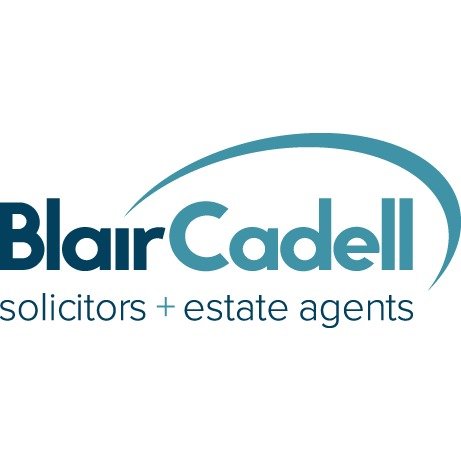Best Inheritance Law Lawyers in Edinburgh
Share your needs with us, get contacted by law firms.
Free. Takes 2 min.
List of the best lawyers in Edinburgh, United Kingdom
About Inheritance Law in Edinburgh, United Kingdom
Inheritance law in Scotland, including Edinburgh, differs from England and Wales. In Edinburgh you navigate the law of succession, Wills, executors, and the concept of legal rights for spouses and civil partners. The process often involves the Sheriff Court and an executor or administrator known as the person entitled to administer the estate. Key formalities are set out in Scottish statute and case law, not simply English practice.
The core framework relies on major Acts such as the Succession (Scotland) Act 1964 and the Wills (Scotland) Act 1830, which establish how wills are made and when legal rights apply. See the official legislation for implementing details: Succession (Scotland) Act 1964 and Wills (Scotland) Act 1830. For capacity related decisions, the Adults with Incapacity (Scotland) Act 2000 also guides how estates can be administered when a person lacks capacity. See Adults with Incapacity (Scotland) Act 2000.
In Scotland, the process of proving a will or confirming an administrator is often described as obtaining a grant of Confirmation, issued by the Sheriff Court. The administration of an estate may involve dealing with both moveable and heritable property, and may include claims by spouses under legal rights rules. Practical guidance and forms are found through official sources such as the Registers of Scotland and UK government portals. See Probate in Scotland - GOV.UK and Registers of Scotland.
In Scotland, a surviving spouse has legal rights to a portion of the deceased’s moveable estate, and these rights operate alongside any will unless legally varied.
Source: Registers of Scotland and Scottish Government guidance.
Why You May Need a Lawyer
Hiring a solicitor or conveyancer in Edinburgh can save time, reduce costs, and protect your rights. Below are real-world scenarios where legal counsel is typically needed.
- A surviving spouse disputes a will that leaves them a reduced share of the estate and seeks to enforce legal rights to the moveable property.
- An executor named in a Scottish will needs to obtain Confirmation to administer an estate with property in Edinburgh and foreign assets requiring cross-border probate.
- There is a suspicion of lack of capacity or undue influence affecting the creation of a will, leading to a challenge in the Sheriff Court.
- There is no will (intestacy) in Scotland; a spouse and children may be entitled to specific shares, and you need guidance to protect dependants.
- You need to change the executor or appoint additional executors after death due to disagreement among beneficiaries or incapacity of a named executor.
- Assets involve complex arrangements such as trusts, business interests, or property held abroad, requiring specialist advice on Scottish and foreign law.
Local Laws Overview
Edinburgh residents are primarily governed by Scotland’s distinct framework for inheritance. The following statutes are central to everyday matters of wills, estates, and succession in Scotland.
- Succession (Scotland) Act 1964 - Governs intestacy rules, the rights of spouses and civil partners to the estate, and the basic framework for distributing an estate where there is no valid will. Legislation.
- Wills (Scotland) Act 1830 - Sets out the formalities for creating and revoking a valid will, including required signatures and witnesses. Legislation.
- Adults with Incapacity (Scotland) Act 2000 - Provides protections and mechanisms for managing the affairs of adults who lack capacity, which can affect estate administration and testamentary decisions. Legislation.
Notes on recent trends: Scotland continues to refine procedures for probate, including digital records and streamlined confirmation processes. Official guidance emphasizes using qualified solicitors to handle complex estates and cross-border assets. See GOV.UK guidance on probate in Scotland and ROS resources for practical steps.
Tip: When dealing with complicated estates, Scottish legal terminology such as “Confirmation” and “legal rights” can affect timing and entitlements. For official explanations, consult GOV.UK probate in Scotland and Registers of Scotland.
Frequently Asked Questions
What is the difference between probate and confirmation in Scotland?
Probate is the process of proving a will in court. Confirmation is the grant from the Sheriff Court to administer the estate. In practice, both steps may occur in sequence during estate administration.
How do I start a probate process in Edinburgh?
Begin by locating the will and identifying all assets. Contact a Scottish solicitor to prepare Confirmation documents and file them with the Sheriff Court. Expect a formal application and an asset inventory.
What is meant by legal rights in Scottish inheritance law?
Legal rights are a share of the deceased's moveable estate reserved for the surviving spouse or civil partner and, in some cases, for children. They operate alongside the terms of the will.
How much does probate cost in Scotland, typically?
Costs vary with estate size and complexity. Typical fees include solicitor charges, court fees, and possibly executor fees. A straightforward case may cost in the low thousands, while complex estates can exceed ten thousand pounds.
How long does probate take in Scotland in straightforward cases?
Simple matters can take several months, while complex estates may take a year or longer. Timelines depend on asset types, consent from beneficiaries, and any disputes.
Do I need a will if I own property in Edinburgh?
Not necessarily, but a will clarifies how assets should be distributed and can reduce disputes. Without a will, Scottish law determines who inherits through intestacy rules.
What is the process to contest a will in Scotland?
You can challenge a will on grounds such as lack of capacity, undue influence, or failure to meet formal requirements. A solicitor can guide you through evidence collection and court steps.
Can I use any solicitor, or do I need a specialist in inheritance law?
While any solicitor can advise, a specialist in Scottish inheritance law typically offers more precise guidance for complex cases and cross-border issues.
What documents are needed to apply for Confirmation in Edinburgh?
Common documents include the death certificate, the original will or details of intestacy, an inventory of assets, and identification for the applicant and witnesses.
What is the difference between intestacy and a will in Scotland?
A will directs how assets are distributed. Intestacy applies when there is no valid will, and the statutory rules determine beneficiaries and shares.
Do I need to appoint a power of attorney for probate matters?
If you are handling someone else’s affairs and they lack capacity, a power of attorney or guardian may be necessary. For post-death administration, a solicitor guides the process rather than a power of attorney.
Is there a standard path for dealing with assets abroad during Scottish inheritance matters?
Cross-border estates require coordination between Scottish law and foreign jurisdictions. A solicitor with cross-border experience helps align Confirmation with foreign probate procedures.
Additional Resources
These official resources can help you understand your rights, required forms, and the steps to take in Edinburgh.
- Registers of Scotland (ROS) - The official body responsible for wills information, Confirmation, and records of land and property. Functions include administering the probate process in Scotland and maintaining official estate records. ROS.
- GOV.UK - Wills and probate in Scotland - Government guidance on probate procedures, applying for Confirmation, and related fees. GOV.UK Scotland probate.
- Citizens Advice Scotland - Independent advice network offering practical information on wills, estate administration, and debt or tax considerations. Citizens Advice Scotland.
Next Steps
- Define your objective: decide if you need help with a will, probate, or resolving disputes. Timeframe: today.
- Gather documents: death certificate, will (if any), asset lists, and any prior communications with executors or recipients. Timeframe: 1-2 weeks.
- Assess whether you need a Scottish solicitor specializing in inheritance law or a general solicitor with probate experience. Timeframe: 1 week.
- Schedule an initial consultation with a solicitor to review your case and discuss fees. Timeframe: 2-3 weeks.
- Request a written estimate of costs and a plan of action, including expected timelines. Timeframe: during the consultation.
- Provide requested information promptly to avoid delays in Confirmation or dispute resolution. Timeframe: ongoing during the case.
- Proceed with formal steps: confirm the will or commence intestacy procedures, file the Confirmation application, and coordinate asset transfer. Timeframe: 1-12 months depending on complexity.
Lawzana helps you find the best lawyers and law firms in Edinburgh through a curated and pre-screened list of qualified legal professionals. Our platform offers rankings and detailed profiles of attorneys and law firms, allowing you to compare based on practice areas, including Inheritance Law, experience, and client feedback.
Each profile includes a description of the firm's areas of practice, client reviews, team members and partners, year of establishment, spoken languages, office locations, contact information, social media presence, and any published articles or resources. Most firms on our platform speak English and are experienced in both local and international legal matters.
Get a quote from top-rated law firms in Edinburgh, United Kingdom — quickly, securely, and without unnecessary hassle.
Disclaimer:
The information provided on this page is for general informational purposes only and does not constitute legal advice. While we strive to ensure the accuracy and relevance of the content, legal information may change over time, and interpretations of the law can vary. You should always consult with a qualified legal professional for advice specific to your situation.
We disclaim all liability for actions taken or not taken based on the content of this page. If you believe any information is incorrect or outdated, please contact us, and we will review and update it where appropriate.











